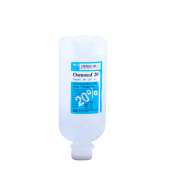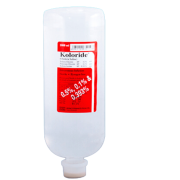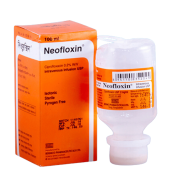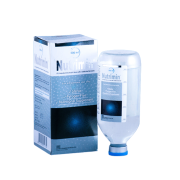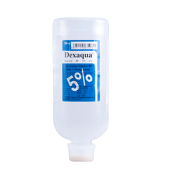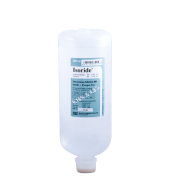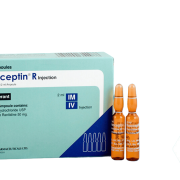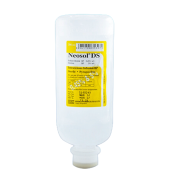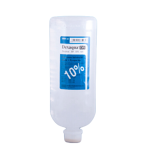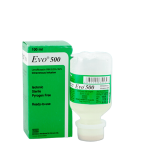Dexoride
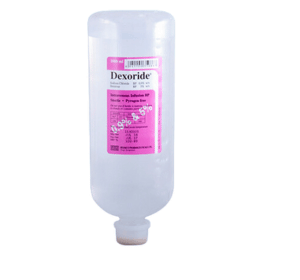
Generic Name: 5 % Dextrose & 0.9% Sodium Chloride
Dosage Form: Sodium Chloride
TG Name: Intravenous Fluids
1. What Dexoride is and what it is used for?
Dexoride is a sterile solution of Dextrose and Sodium Chloride in water for injection. Each 100 ml of solution contains Dextrose Monohydrate equivalent to Dextrose Anhydrous B.P. 5.0 gm and Sodium Chloride B.P. 0.9 gm. This represents 5% Dextrose in isotonic Sodium Chloride solution. Approximate concentration of sodium and chloride ions in Dextrose is 150 mmol/ lit.
Dexoride solution is indicated when there is combined water and sodium depletion. It provides Dextrose as a nutrient in a suitable medium of Sodium Chloride which is isotonic to body fluid, or it may also be employed as a source of isotonic Sodium Chloride or both. It is usually used in the maintenance and replacement of fluid, electrolyte and carbohydrate in patients who are unable to take fluid and nutrients by mouth e.g. in case of persistent vomiting, during and after surgery, shock or accidents.
2. Before you take Dexoride?
Do not take this medicine and tell your doctor if:
Solutions containing dextrose may be contraindicated in patients with known allergy to corn or corn products.
Take special care with Dexoride
Check with your doctor before taking this medicine if:
As the preparation contains Sodium Chloride, it should be administered with caution to patients with congestive heart failure, peripheral or pulmonary oedema, impaired renal function or preeclampsia. Serum glucose concentration should also be carefully monitored and concurrent use of insulin may be needed in case of diabetic patients.
Pregnancy and breast-feeding
FDA pregnancy category C. It is not known whether dextrose 5% in water will harm an unborn baby. Tell your doctor if you are pregnant or plan to become pregnant while using this medication.
It is not known whether dextrose 5% in water passes into breast milk or if it could harm a nursing baby. Do not use this medication without telling your doctor if you are breast-feeding a baby.
3. How to take Dexoride?
Taking this medicine. Always use Dexoride exactly as your doctor has told you. You should check with your doctor or pharmacist if you are not sure.
How much to take
As directed by a physician. Dosage is dependent upon the age, weight, and clinical condition of the patient as well as laboratory determinations.
4. Possible side effects?
Reactions which may occur because of the solution or the technique of administration include febrile response, infection at the site of injection, venous thrombosis or phlebitis extending from the site of injection, extravasation and hypervolemia.
If an adverse reaction does occur, discontinue the infusion, evaluate the patient, institute appropriate therapeutic countermeasures and save the remainder of the fluid for examination if deemed necessary.
Tell your doctor if any of the side effects gets serious or lasts longer than a few days, or if you notice any side effects not listed in this leaflet
5. How to store Dexoride?
Dexoride should be stored at controlled room temperature.


